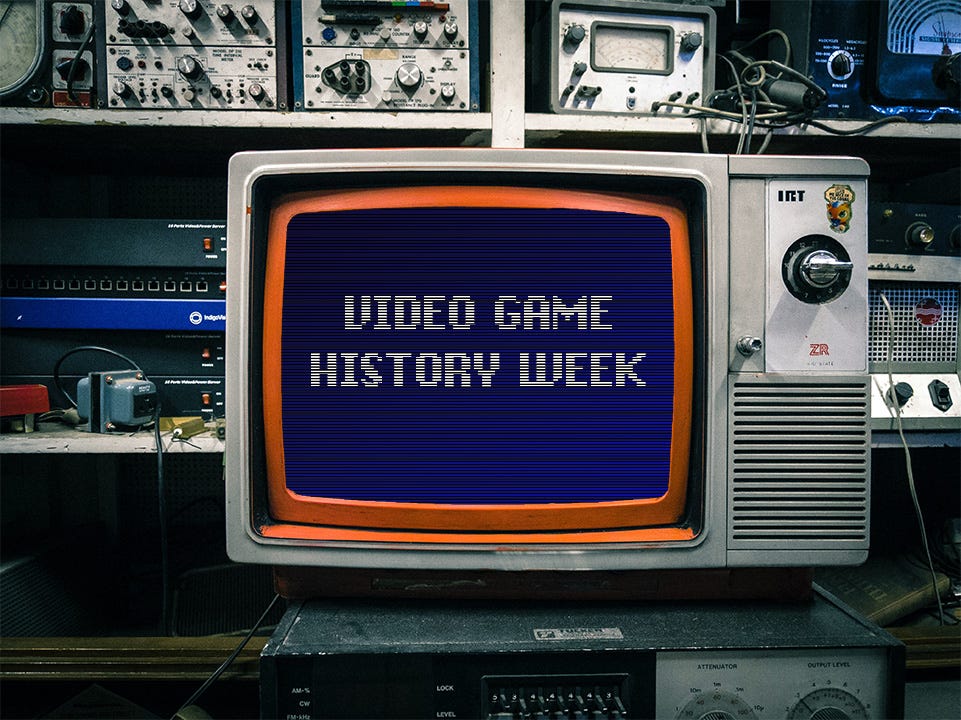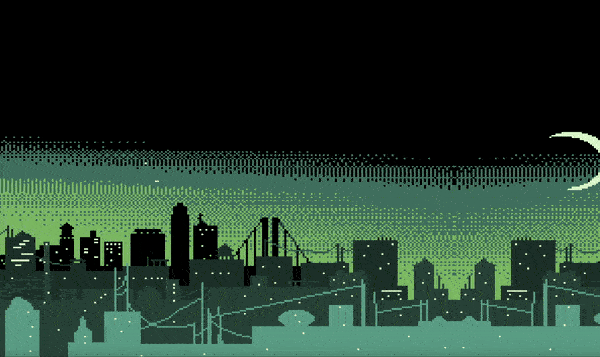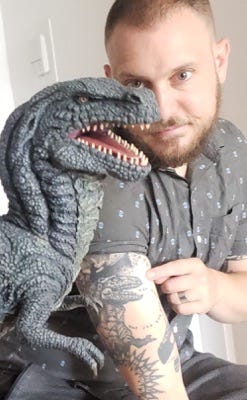VGHW Feature: Retro eight-bit RPG storytelling, but make it super gay.
How this award-winning SFF writer is turned to retro video games for his next story
Welcome to Video Game History Week! In honour of the first anniversary of my book Fight, Magic, Items: The History of Final Fantasy, Dragon Quest, and the Rise of Japanese RPGs in the West, Astrolabe is celebrating video game history with a plethora of stories, features, lists, and interviews about video games, the people who make them, and the people who write about them.
Fight, Magic, Items is on sale! Use the code “LEVELUP” at checkout to get 20% off a physical copy through the Running Press website!

I was ten years old when a video game first made me cry—Ninja Gaiden, for the NES.
Emotional turmoil from THREE devastatingly difficult final boss battles + exquisite music + heartbreaking plot twist = I’m damaged for life.
Other games of the era followed suit – Final Fantasy Adventure, on the Game Boy, has TWO SEPARATE SOB-INDUCING STORY MOMENTS.
Video games have come a long way since then. And so have I.
But also, we haven’t.
In a world filled with cutting-edge graphics and complex game mechanics, the simplicity and nostalgia of retro-style games still exerts a powerful hold over our imaginations.
I've been a gamer since 1987, and while I’m blown away by so many of the massive triple-A games of the past ten years, the old stuff still dominates my playing time. Like, I've been meaning to finish Cyberpunk 2077 for three years, but somehow I make time for a Super Metroid playthrough once a year.
The seemingly-simple storytelling tools of games for the Game Boy and the NES continue to haunt me, which is why I embarked on an idiotic a daunting quest to create my own retro RPG. But like a super-gay one.
Simply put, I wanted to make people feel what Final Fantasy Adventure made me feel.
Understand, I had no experience with programming or pixel art. I knew I needed a game engine to bring my idea to life, but which one was best for a retro game?
I asked around in a bunch of forums and subreddits, as I assessed tools like Unity and RPG Maker. Ultimately, I landed on Godot, an open-source game engine, because lots of folks told me that it did a better job with 2D games than other engines that are more focused on 3D development.
So, I came for the 2D suitability and the absence of licensing fees, but I stayed for the open-source ethics. Godot's user base is a massive community of folks who are invested in each other's success and take the time to answer even the stupidest most basic questions from utter noobs like me.
Godot folks are active and helpful. I found numerous tutorials, forums, and documentation that answered my questions and guided me through the development process.
Which is great because I'd literally never coded a line in my life. And I'd (inadvertently) set myself a massive challenge—to solo code a complex branching storyline game. I assumed there would be programs to automate the tough parts! Which, there are... but they take away the kind of control and autonomy I'd need to take the game I had in my head and put it out into the world. Which is how a project I thought I could wrap up in a couple of months has taken me years. And I've loved every minute of it. Even the excruciating ones.
But why are we still obsessed with retro games in the first place?
Part of it is simple nostalgia. They feel familiar. They feel safe. When I play Final Fantasy Adventure today, it's like returning to a friend's house I haven't seen in years.

But it's more than that. The limitations of older hardware forced gamedevs to prioritize story and gameplay over graphics, emphasizing challenging puzzles, compelling stories, and memorable characters. This approach resonates with players who appreciate substance over style.
I've tried my best to tap into that emphasis on story and character, and to be worthy of the legacy of games like Final Fantasy Adventure and Ninja Gaiden. And while SMOKEFALL is a long way from being finished, I've finally got a playable 15 minute demo up on Itch. I would love to hear your thoughts on it! You can sign up here for updates, or share feedback.
My journey into retro RPG game development using the Godot engine has been an incredibly rewarding experience, and I hope players who value the old-school classics as much as me will connect with my super-gay RPG love story.
And if it makes you cry I’m sorry, I’m not sorry.
About Sam J. Miller

Sam J. Miller's books have been called "must reads" and "bests of the year" by USA Today, Entertainment Weekly, NPR, and O: The Oprah Magazine, among others. His short fiction has been published in places like The Kenyon Review, Vogue Italia, Tor.com, Asimov's, and more. He's received the Nebula, Locus, and Shirley Jackson Awards, as well as the hopefully-soon-to-be-renamed John W. Campbell Memorial Award. He's also the last in a long line of butchers. Sam lives in New York City, and at samjmiller.com.
Support
There are lots of ways to support Astrolabe and my other work. Check ‘em out!
Keep In Touch
Enjoy Astrolabe? Want more SFF and retro gaming goodies? You can find me on Twitter and my website.
Credits
Astrolabe banner photo by Shot by Cerqueira on Unsplash

